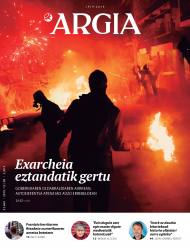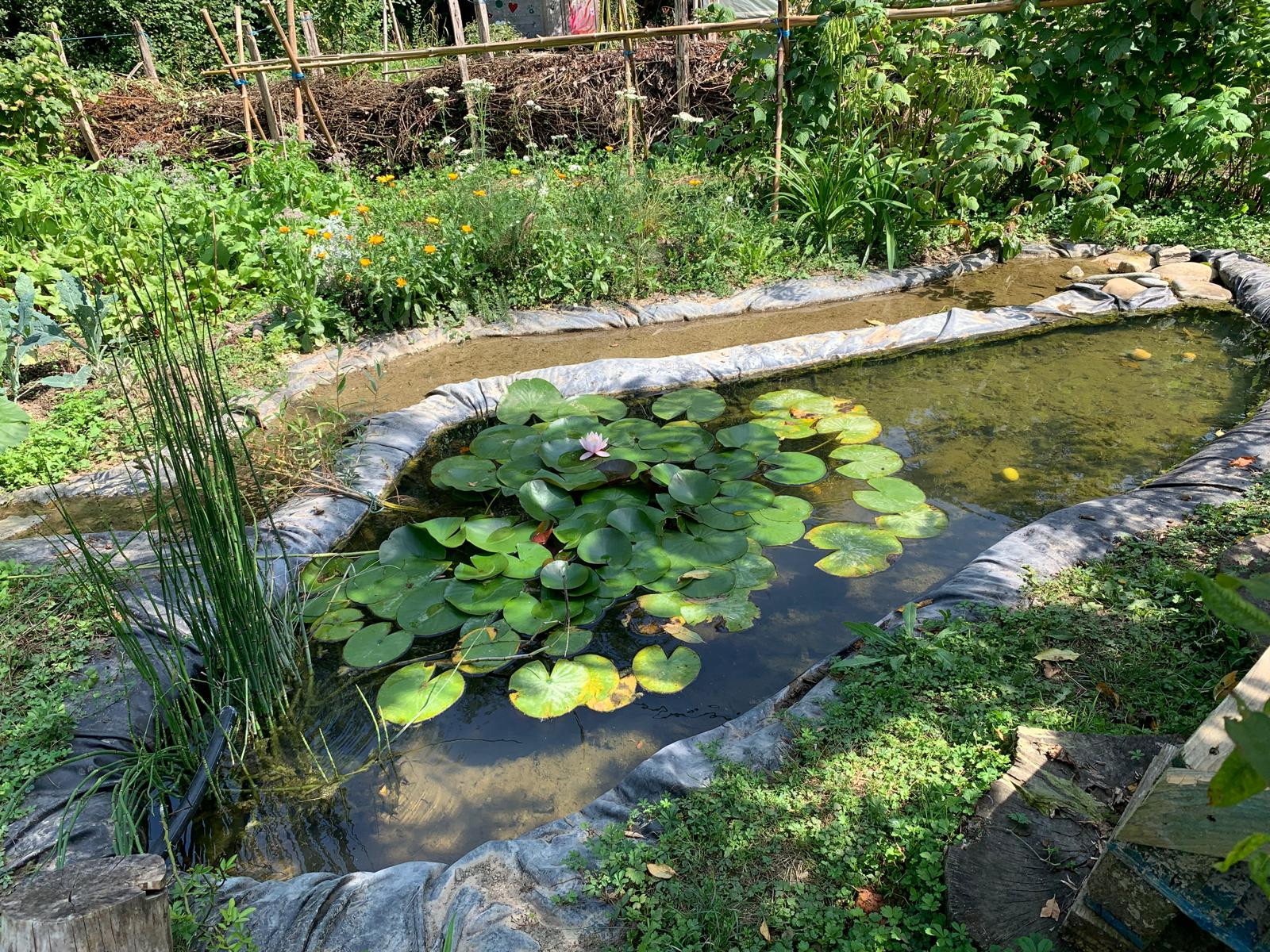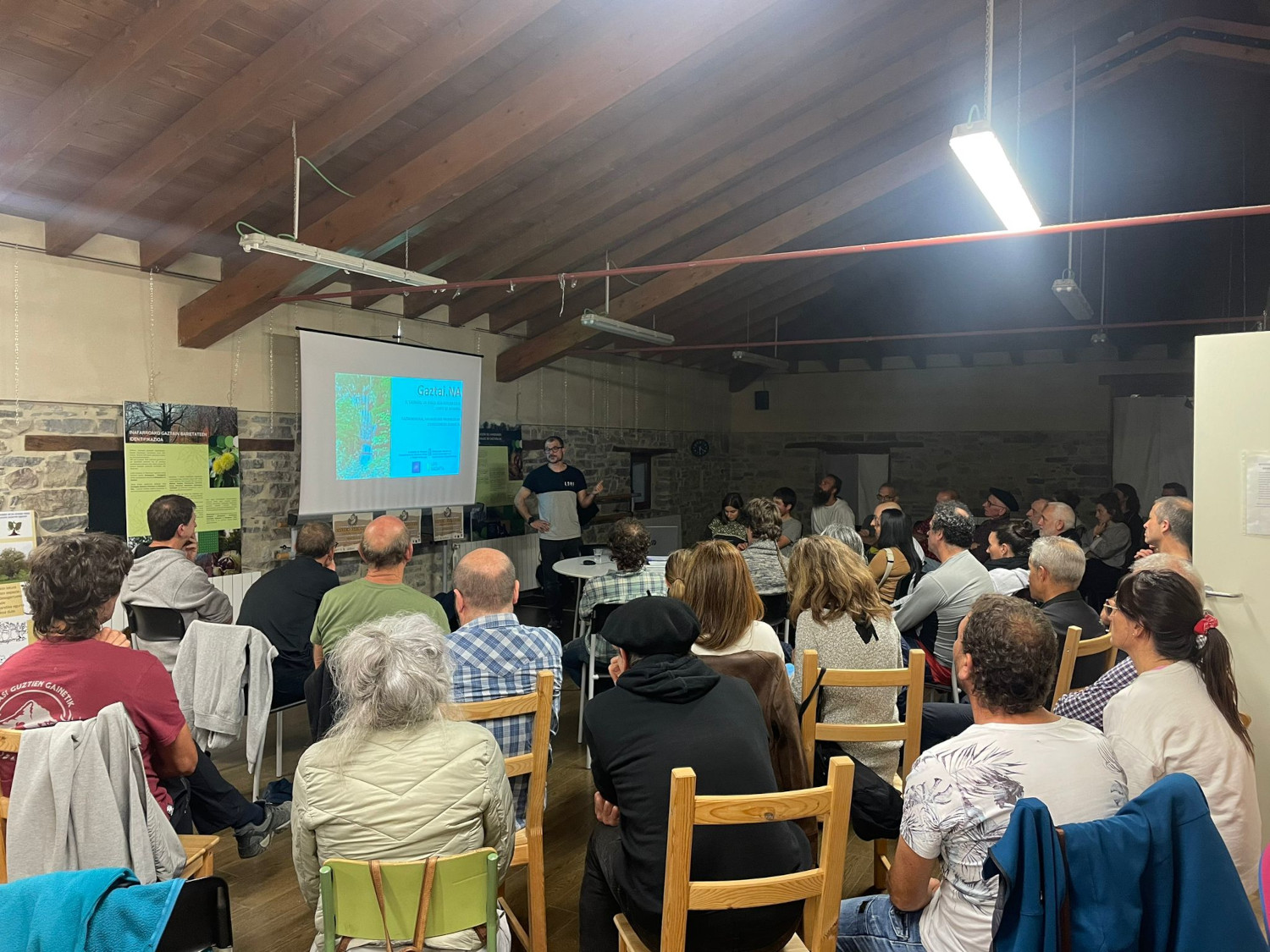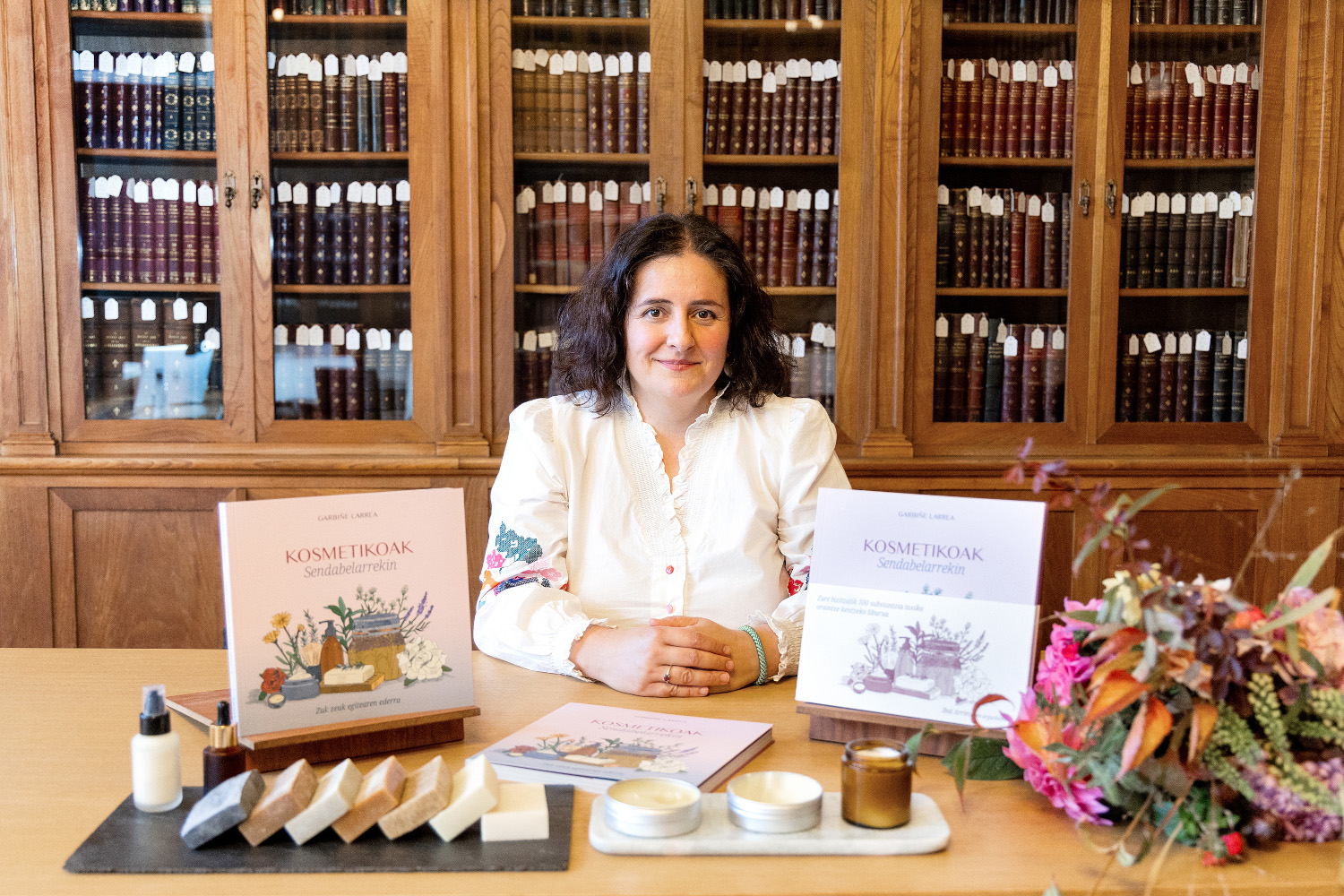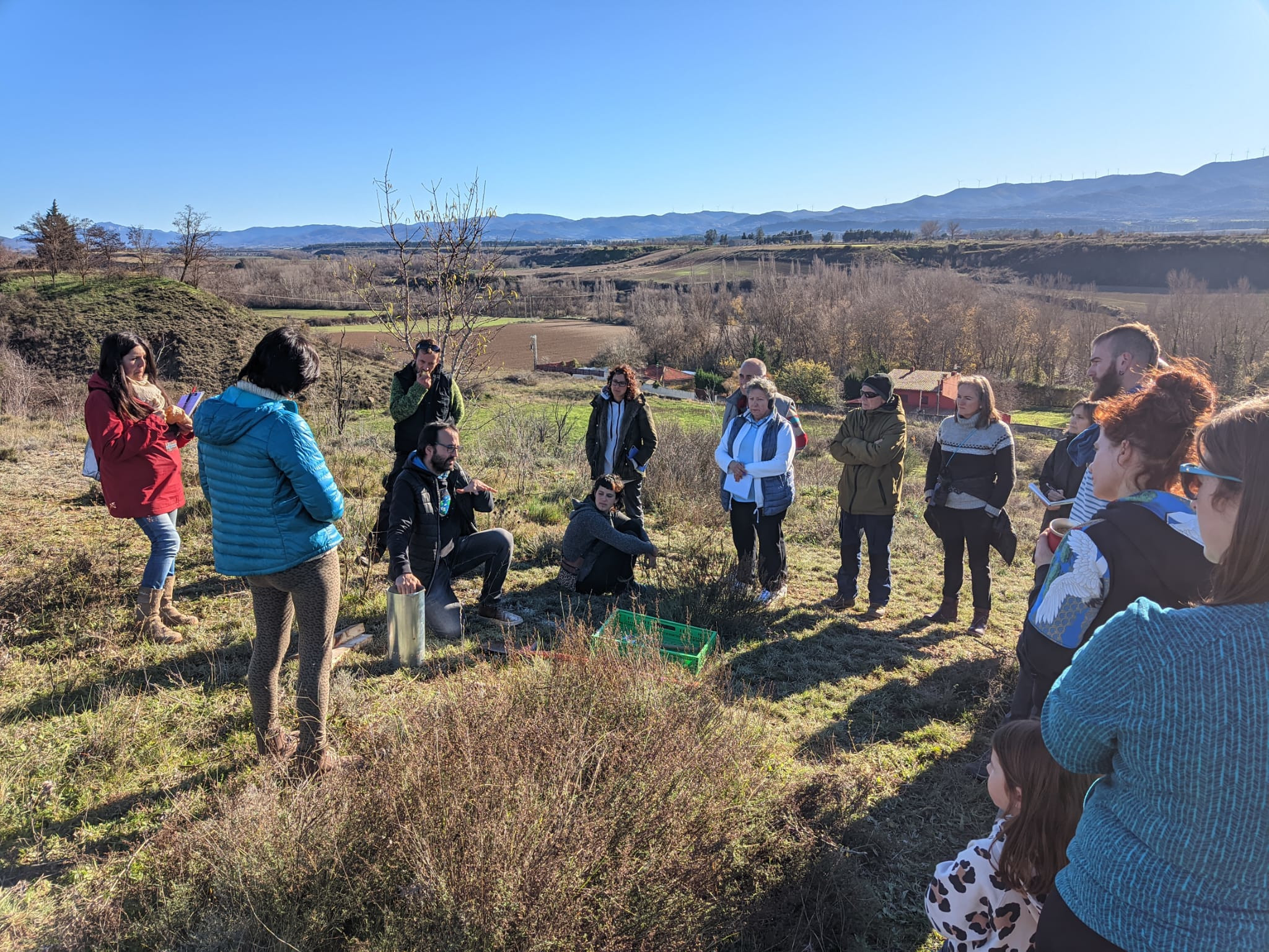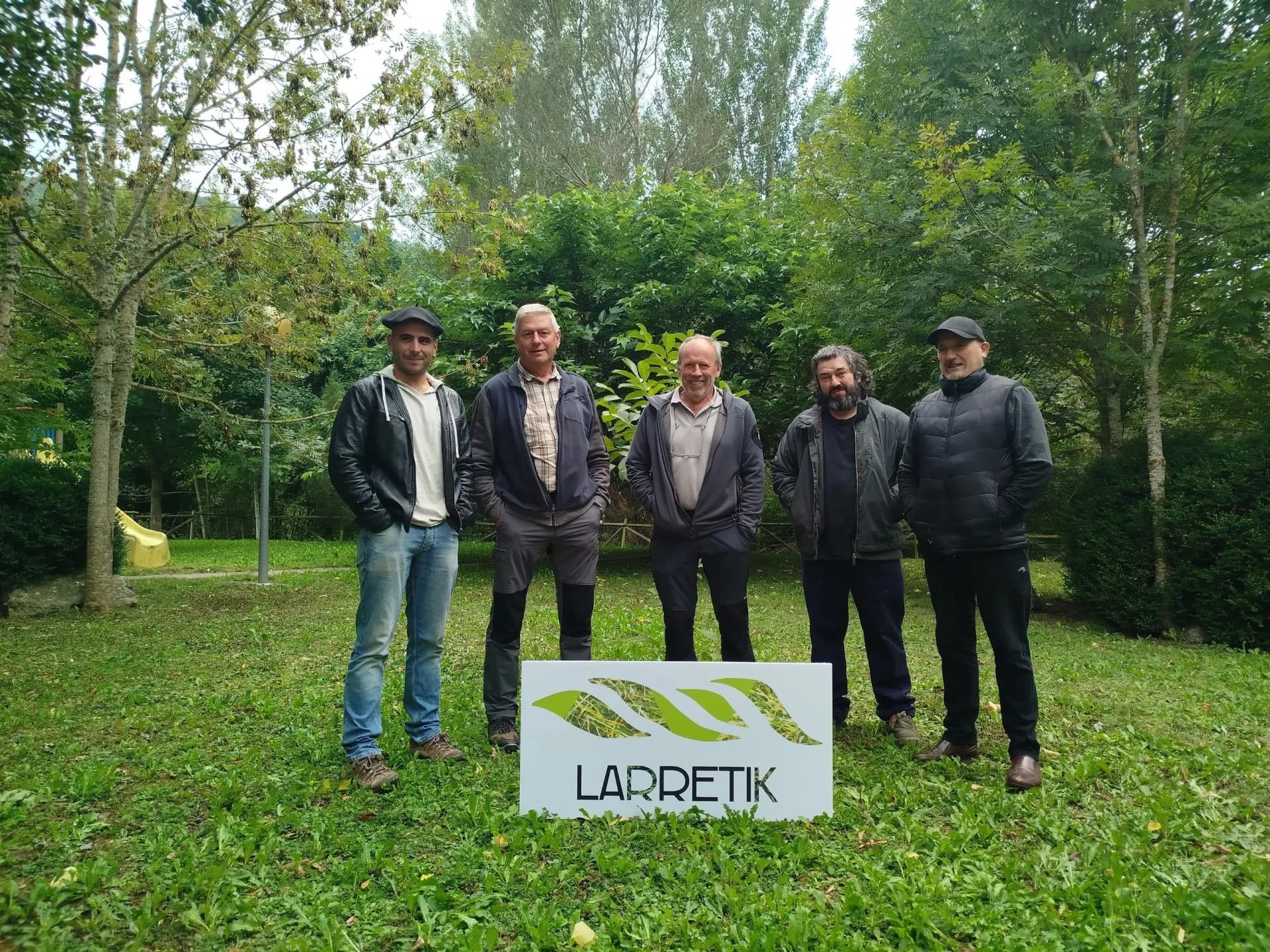
Café Tierra de Chillida Leku was opened to the public in April, under the direction of cook Fede Pacha. From the outset they have opted for local products: the ingredients they produce are close, handcrafted and, as far as possible, environmentally friendly. “The condition of the people who run the museum was that everything offered in the cafeteria was indigenous or ecological,” explains Pacha.
Large restaurant Diameter 200
The restaurant Diametro 200, located in the Orona Ideo building of Hernani, also supplies the dining room of the workers of Orona. Diametro 200 is known for its commitment to serving local products. Pacha is a chef who has been working on this project for years, and says that the Tierra Cafeteria is in a way a succession or an extension of it: “Almost 100% of the product we offer is native: organic wines, craft beer, bread, cheeses, meat, fish… What is done in Euskal Herria is present here.”
We asked him how and from where they get the products they need for the cafeteria. “I have been working for years in the hospitality sector with local products, we have been working in this way for about six years on the Diametro 200 project and we already have a network of producers to whom we buy products,” he says. He says that in the restaurants you have to feel like offering what is here, nothing else. “Nowadays in Euskal Herria it is made of everything, there is no problem in getting products.” The vegetable is widely used in the dishes of the Cafeteria Lurra, and most is taken at the Agroecological Farm of Karabeleko, in Hernani.
Eating the local is culture
Pacha believes that we are driving local culture with products from our environment. “It is our gastronomic culture, that our mothers and our fathers have always had, that there have been in the cottages… it is rare for people not to make that link,” he explained. It adds that it is important that the economic circle is present: if there is demand for local products, there will be production, and the local economy will be strengthened in this way: “We must consume the artisan products that produce our baserritars to enhance what is ours. It has no more mystery!”







